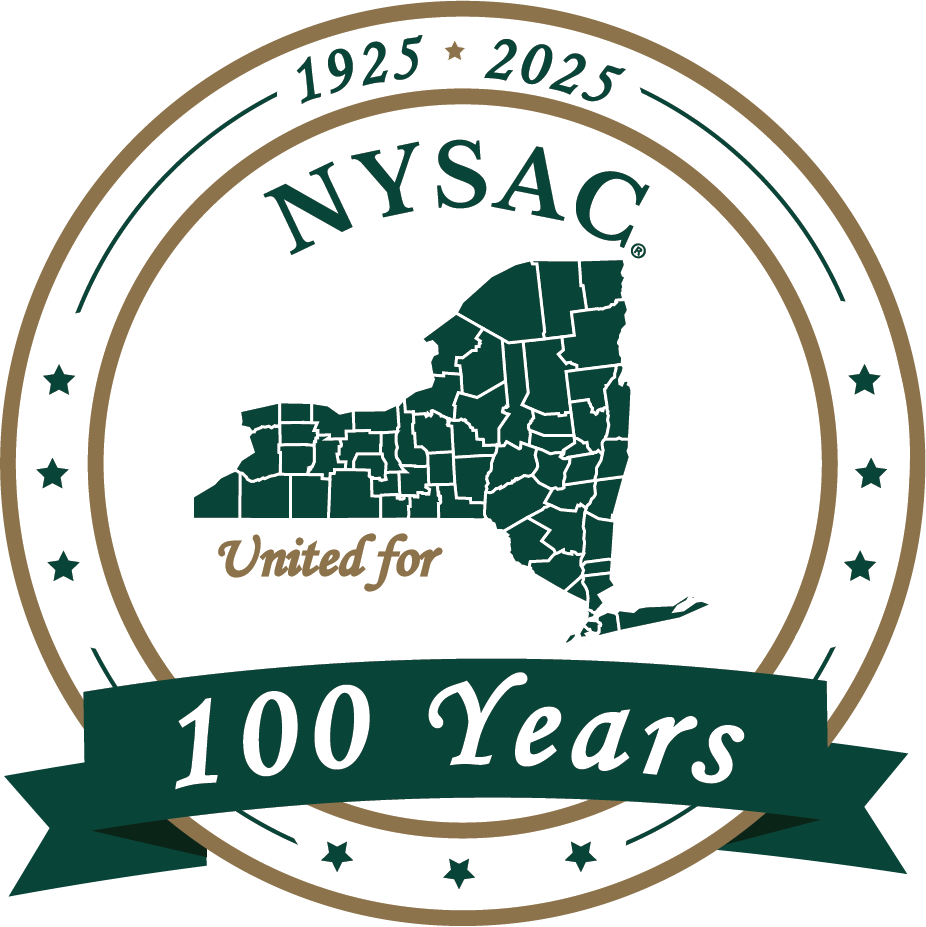2024 Executive Budget Delivers On County Environmental Priorities
On February 1st, Governor Kathy Hochul unveiled her SFY 2024 Executive Budget proposal, officially marking the beginning of budget season in Albany. The spending plan contains several significant investments and legislative actions that will help protect our environment and keep New Yorkers safe and healthy.
Clean Water Infrastructure Funding
Aging water infrastructure, deteriorating pipes, struggling wastewater treatment plants, and water main breaks have become commonplace throughout the state. In the 2017-18 State Budget, New York made a $2.5 billion investment in drinking water infrastructure, clean water infrastructure and water quality protection. This, year's Executive Budget proposed to build on that investment by including $500 million in clean water infrastructure funding to bring the State's total clean water investment to $5 billion since 2017.
Environmental Protection Fund
Counties are encouraged to see that this year's Executive Budget once again includes $400 million for the Environmental Protection Fund (EPF) to support projects that work to mitigate the effects of climate change, improve agricultural resources, protect water sources, advance conservation efforts, and provide recreational opportunities. Of the $400 million included in the proposal designates $54.3 million for solid waste programs, $114.2 million for parks and recreation, $186.9 million for open space programs, and $44.7 million for climate change programs.
Waste Reduction and Recycling Infrastructure Act
For several decades, counties and municipalities have borne the cost and financial risk of recycling consumer packaging. Despite having no control over what packaging is used, local governments are burdened with the expense of managing an ever-evolving, sophisticated packaging waste stream on behalf of the product manufacturers that generate the material.
Today, in the wake of a global recycling crisis, the value of curbside recyclables no longer covers the cost of processing the materials at local material recovery facilities (MRFs).
Contained within the proposal is legislation to create a statewide extended producer responsibility (EPR) program that will transfer the responsibility of end-of-life management for packaging and paper products back onto the producer. This legislation will provide relief to local governments while incentivizing producers to reduce waste and use packaging that is easier to recycle.
Clean Up Forever Chemicals Initiative
For years, one of NYSAC's top environmental priorities has been to work with the state to reduce the danger from PFAS and other “forever chemicals.” The Executive Budget would expand the Environmental Restoration Program (ERP) to allow available state appropriations to support municipalities in investigating and remediating municipally owned sites contaminated with PFAS and emerging contaminants. It would also make technical amendments to disqualify municipalities that deliberately caused contamination, allow for settlement funds a municipality receives to be used as the local match, and broaden the eligibility criteria for projects under ERP. The Budget includes $60 million to fund the first year of this Clean Up “Forever Chemicals” initiative.
Establish the Hazard Mitigation State Revolving Loan Fund
Another bright spot in the SFY 2024 Executive Budget is the inclusion of legislation to create the New York State Hazard Mitigation State Revolving Loan Fund to provide low-interest loans to local governments for mitigation projects. The federal Safeguarding Tomorrow through Ongoing Risk Mitigation (STORM) Act requires the establishment of this dedicated fund for New York to receive and administer loans via capitalization grants from the Federal Emergency Management Agency (FEMA).
Lead Service Line Replacement
Protecting children from exposure to lead is a key public health priority, as even low levels of lead in blood have been shown to affect IQ, ability to pay attention, and academic achievement. Counties are encouraged by legislation within the Executive Budget that amends Local Finance Law to allow New York State to use federal Bipartisan Infrastructure Law (BIL) funding to replace entire lead service lines. This would include portions of lines that may cross private property boundaries, a requirement of BIL funding. New York State is anticipated to receive $115 million annually for the next five years in BIL funding to inventory and replace lead service lines in public water systems. Municipalities, school districts, and district corporations will be able to access low-cost financing options through the Environmental Facilities Corporation (EFC).
Contact Us
New York State Association of Counties
515 Broadway, Suite 402
Albany, NY 12207
Phone: (518) 465-1473
Fax: (518) 465-0506

